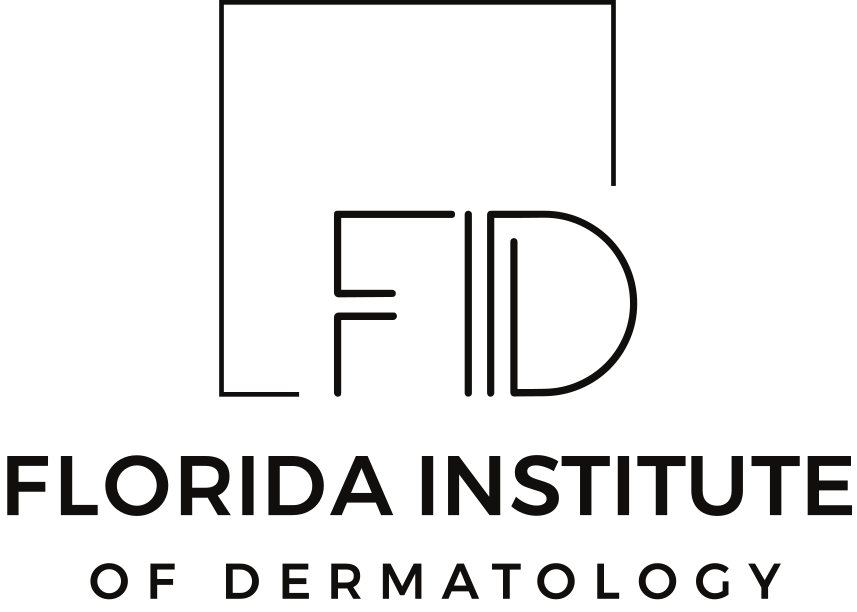Medical
Dermatology
The skin is the largest organ in the body.
Our goal at Florida Institute of Dermatology is to optimize your skin health. We are experts at treating diseases of the skin, hair and nails. We treat and diagnose patients of diverse backgrounds as well as the pediatric patient population.
GENERAL DERMATOLOGY
At Florida Institute of Dermatology, our experts can evaluate and treat most common skin diseases and also rare disorders of the skin, hair and nails. From acne, eczema, psoriasis, allergic reactions of the skin to hair loss, skin infections, other inflammatory skin conditions and skin cancers, we are equipped to provide you with the highest quality of care to resolve your skin concerns.
Minors: A parent or the legal guardian must attend the initial appointment with the child and all appointments involving invasive treatment. Minor children must be accompanied by a parent or authorized individual 18 years of age or older for all appointments. In the event a parent or legal guardian cannot bring the child to a routine appointment, we need a specific form (the Parental Temporary Assignment of Authorization to Treat Minor Child) signed but the signature must be witnessed by a staff member of the Florida Institute of Dermatology.
SKIN CANCER
Skin cancer is the most common type of cancer worldwide and current estimates are that 1 in 5 Americans will develop skin cancer in their lifetime. There are many different types of skin cancers, however, the most common are basal cell carcinoma, squamous cell carcinoma, and melanoma. Melanoma accounts for only 1% of all skin cancers but is responsible for the majority of skin cancer deaths in the US.
SKIN CANCER SURVEILLANCE
We agree with the American Academy of Dermatology (AAD) recommendation for annual skin exams. This is necessary for early detection and treatment of skin cancer.
HIGH-RISK SKIN CANCER PATIENTS
For patients with a history of skin cancer, a long history of sun exposure, sunburns or those that are immunocompromised, more frequent monitoring is recommended.
“I am in my 80’s fair-skinned so have had many skin cancers since a teenager. Dr Wangia is by far the best Dermatologist I have ever seen. He respects the patient, listens well and answers carefully plus cares about the entire person. His surgical skill is outstanding. So grateful I found him after moving to Central Florida.”
SKIN OF COLOR
Skin cancer surveillance is highly recommended. Early detection and treatment of skin cancer in this population has a remarkable impact on survival rates.
SKIN CANCER TREATMENTS
At Florida Institute of Dermatology, we believe that skin cancer therapy should be tailored and individualized to each patient. Tumor type, location of the skin cancer, age and health of the patient and patient preference are all factors that are important in reaching a therapeutic decision.
Some of the commonly used modalities include: Mohs micrographic surgery, Excisional surgery, Electrodessication and curettage, Cryosurgery, Radiation therapy, Immunotherapy (topical and systemic) Chemotherapy (local and systemic).
PHOTODYNAMIC THERAPY (PDT) – “RED LIGHT”
Therapy that uses photosensitizing agents accompanied by specific wavelength of light to treat premalignant or superficial malignant growths by directly killing these abnormal cells. Other uses include treatment of acne.
PHOTOTHERAPY (UV-LIGHT TREATMENT)
Phototherapy or light therapy is a prescription treatment typically prescribed by a dermatologist. Involves exposing skin to specific wavelength of ultraviolet light on a regular basis usually 2-3 times weekly under medical supervision. Treatments are usually done at a doctor’s office or at home with a phototherapy unit. The key to success is consistency. The following conditions are usually responsive to phototherapy: Atopic dermatitis/Eczema, Psoriasis, Vitiligo, Pruritus (itching), Mycosis Fungoides (skin lymphoma).

